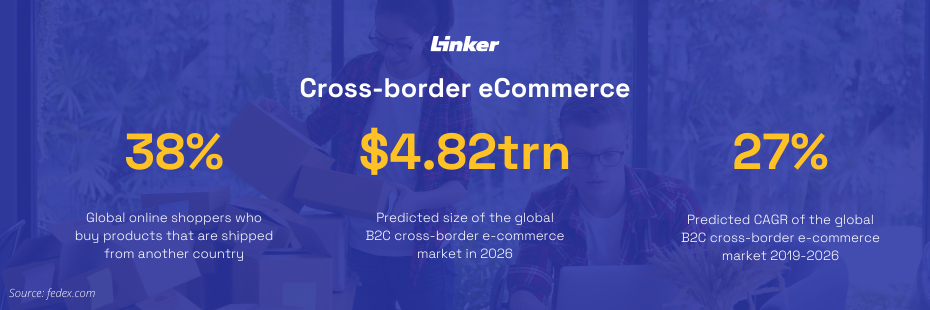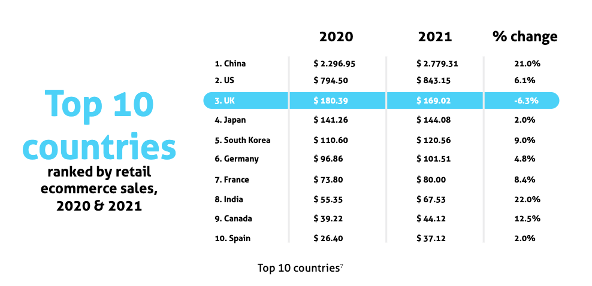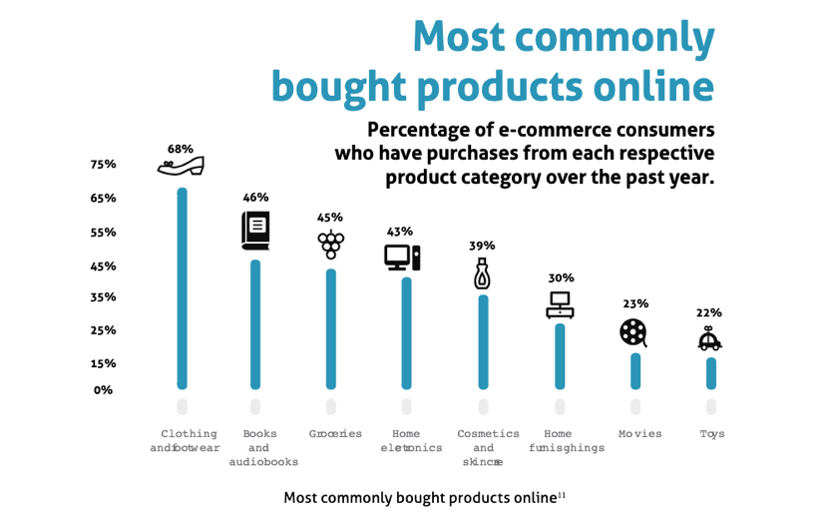In order to answer your request, we are obligated to process the data given above. Sometimes, however, we would like to use them for slightly different purposes, such as statistical data or informing you about our new products and services.We promise that we will use the given information for communication purposes only. We also remind you that you can unsubscribe from our mailing at any time (see Privacy Policy).
Entering new markets is a huge challenge for any ecommerce business. To be successful with the expansion, online retailers should not skip the research part.
Failing to prepare is preparing to fail: this quote is valid for many different life aspects, including the sales area. Sometimes ecommerce business models change naturally, opening new opportunities for expansion in an easy way, however, every strategic move should be preceded by well-done research.
We've prepared an article that will guide you through the most crucial topics related to market research for those who consider starting an international business.
Expanding your ecommerce business - tough decisions
Cross-border ecommerce offers a lot of benefits and is constantly growing. The cross-border ecommerce market size was valued at US$ 578.57 Bn in 2019 and is expected to grow at a compound annual growth rate (CAGR) of 17.4% for the forecast period ending 2026 reaching a Market value of US$ 2,248.57 Bn. (source: globenewswire.com). That sounds like a rewarding opportunity for ecommerce stores - new markets, new customers, better brand definition, scaling the business, and more revenue. Especially, if you operate in a market that is already highly saturated.
It's a natural trend, for the world that witnesses ongoing globalisation, where advanced logistics enabled overseas transport and the internet allows customers to virtually visit the shops from around the world. Many ecommerce businesses face the question of whether to scale their sales internationally if this is the right direction and the product or service has the potential to gain new consumers abroad.

Online consumers are changing as well: they are becoming more conscious, expecting their online purchases to be smooth and quick, with a possibility of free return, both for local and international online shopping. Sounds like a challenge, huh?
The decisions about entering international markets are not easy and require a lot of analysis to do and, of course, some level of courage from the owners. Investing a budget into such a big project as covering brand new markets is a strategic decision and generates a lot of question marks. Does it have to be a risky, one-way direction step?
There will always be things that are unpredictable, critical factors that may affect the project of international expansion, however, we can actually do a lot to ensure its future success. How? The first thing is to do extensive, reliable, and accurate research on our target market but not only.
Why is it important to carefully research markets before doing business internationally?
Launching a new product without doing international market research is like setting up for a long and difficult trip without a map and a backpack full of supplies. First of all, you have to understand a new market: how it operates, what are the challenges, and how to prepare your business in general.
The potential success will be more likely if you find out how to handle all the issues, not only the biggest ones, but good research should prepare your business for any surprise. Sometimes a business that is successful in its original location can experience an epic failure internationally. It doesn't happen only to small businesses, with a lack of experience; there are case studies of large corporations that failed with their overseas expansion.
One example is Home Depot which wanted to enter the Chinese market in 2006, with their offer of DIY products for house improvements, addressed to the growing middle-class. The expansion wasn't successful, and finished after six years, because the company hadn't researched the overall way how people there arrange their apartments if there is a DIY trend (there wasn't at all), so it was obvious that rather a little part of society would be interested in such an assortment.

Another example of a company that struggled with launching successful new market sales is Starbucks. Despite that the chain of coffeehouses was already operating in many countries, they didn't make a success in such markets as Australia and Israel. But why? Australia seems to be so close in culture and consumer behaviour to the United States. It turned out, that in both cases Starbucks failed with the research about coffee culture. Drinkers rated the product as of poor quality, not being able to compete with local places, with a specific hospitality and coffee assortment. Simply, this is how Australian people drink their coffee!
If a traditional retail sales experience such problems, online stores will be even more exposed to potential failures, as many business owners treat launching a new sales channel like an easy test, leaving it for future validation "as-is". Nothing more wrong - preparation and research should be finished and confirmed before launching both of them.
Main areas of the international market research
How do prepare the right research? What kind of information is crucial for global ecommerce sales? How to ensure that the collected data is actual and reliable?
Preparing thousands of pages won't be enough if we don't verify the correctness of the data. We may spend hours gaining the information, but if it's not adequate, the context is mistaken or we can't interpret it correctly it may cause more damage than no research at all.
There are many companies that do market research and sell it to companies that prepare to enter the international business. It's a very good idea to pay and use such materials, as you may be sure that those are the freshest industry news with high accuracy.
We recommend to you our blog post series "Explore the market" where you can find basic information about European countries: statistic data, market share, preferences related to internet commerce, and more.
Country overview
First of all, have a look at the land in general. How big is its population? What are the official languages? What is the currency? How much is their current GDP, and purchasing power? Where it is localised, if it's easily accessible or maybe it's situated on the island?
This basic data is publicly available and may give you an initial view of the new market.

Demand and local trends
After gaining some insight into the land in general, it's good to take a closer look at its online market. That part should already give you some answers if entering this area can increase sales.
What are the questions to answer?What is an average basket value? Where do people buy when they shop online? Is there any main, preferred ecommerce platform? What are the most desirable products or product categories?
We would recommend spending enough time researching this part, as it will be a great base for the next step.

Online sales competition
Fine, you have discovered that the market has the potential for electronic commerce of your product. People seem to be interested in spending some money for it, or there is a niche and the project is worth the risk.
Now, you should deeply analyse how the competition operates in the market. What do they offer? From which countries do they come? What are their competitive advantages? Any best practices you can try to apply to your business?
Some brands may have such a strong position in the local market, that even having a better product or price, you won't be able to compete. Find it out before you make any investment.
Or maybe you already spot their weaknesses and you will know how to design your service to make a unique customer experience.
Legal and taxes
Once the business is about to start, it's time to research all the things related to legal aspects.
First of all, if your business remains registered in your home country, you will have to open a sub-company in a new one. If yes, then there is a lot of research to do and some really serious preparation, like for example legal form of business. Then you should check banking regulations and bank account requirements. Also, taxes are a subject of very important research. Companies are subject to corporation tax, which is generally levied on corporate profits and other forms of income.
What kind of permits and certificates does your product need? You may be able to sell something without any permission in one country, while it will be forbidden in another, or will require some specific certification, terms of warehousing, on other rules apply.
A topic that is also connected to the one above, is import/export regulations which will be extremely important for those who want to sell internationally. A list will be long, to ensure safety and quality.
There are organisations that help other businesses with meeting all the requirements, they assist them in preparing all the documentation and in contact with public administration bodies.
Shipping
Logistics is not easy even for a local ecommerce store. It becomes even more complicated when it comes to selling to overseas markets. Fast and reliable shipment is one of the most important things for future customer satisfaction.
Good research on the right logistic strategy and preparing all the processes and operations is also crucial for cost and money savings. Delivering the goods to the distant consumer will always be a challenge, so be prepared to meet the expectations regarding the time of delivery. Courier companies may have different pricing strategies, and it may affect your final revenue. Often, it is more convenient to enter the fulfillment network and keep the payments with just one service provider.
In every country, there are courier companies that are preferred by target audiences so make sure you offer their service for the shipping.
Last but not least, there may be shipping regulations that may apply. The same for returns - make sure you are prepared for that.
Payment methods for online store
Once you have prepared your sales channels for international expansion, you have to be sure your ecommerce website and online store are ready for that as well. But don't just translate the content into English - make sure your ecommerce site responds well to your international customer's needs.
Another thing online stores have to ensure is a smooth and trustworthy payment process. Which one is a preferred payment method? What are trusted payment providers? Good research on the best ecommerce platform may help you solve this issue as well.
Watch out for potential traps!
As you can see, there is a lot to research and analyse before entering any international market. If your ecommerce store is not very complicated and you are starting with just one area, you can perform it by yourself.
But if you own a mid-size company or a complex online store, the work required to be done before making any strategic decision can be huge. Collaborating with external organisations may lower the overall risk and ensure future success.
However, bear in mind that there are multiple threats that even after preparing the best research possible may occur.
What else can be a problematic surprise? Your data may not be up-to-date, it may be analysed in the wrong way or some aspects were skipped.
Scaling internationally does not always mean revenue growth, but it may bring other positive effects such as raising brand awareness, making your business more resistant to external factors, etc.
Even if the launch is successful, a company should keep an eye on the situation, because they may occur local geopolitical events that can hardly impact this part of your business. Being present in various markets sometimes is a good thing for a healthy balance: even if some unpredictable issues occur in one region, you may search for a rescue in another one.





